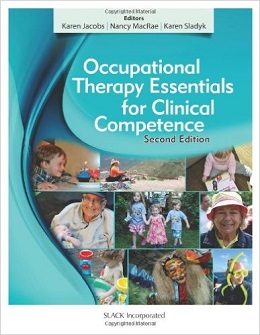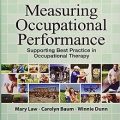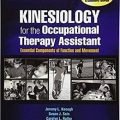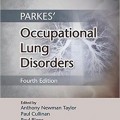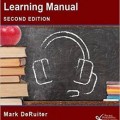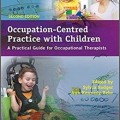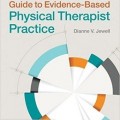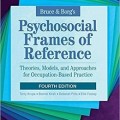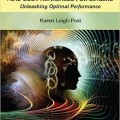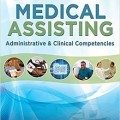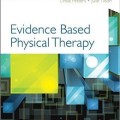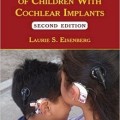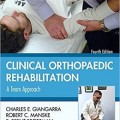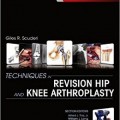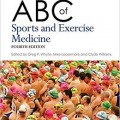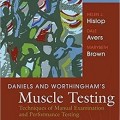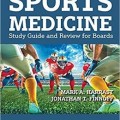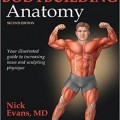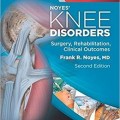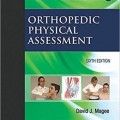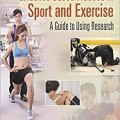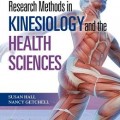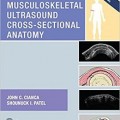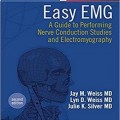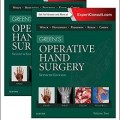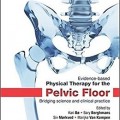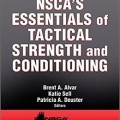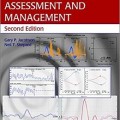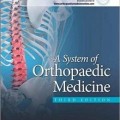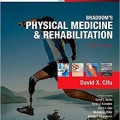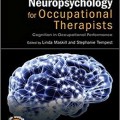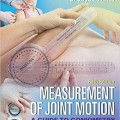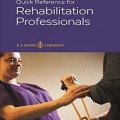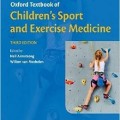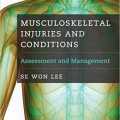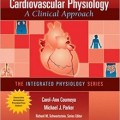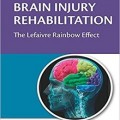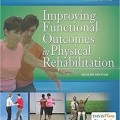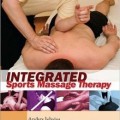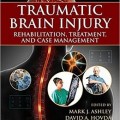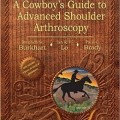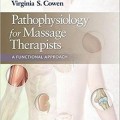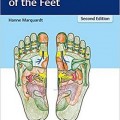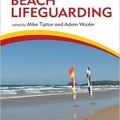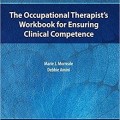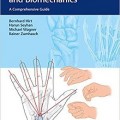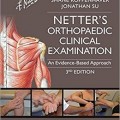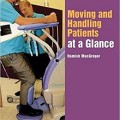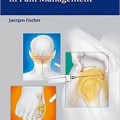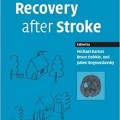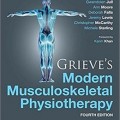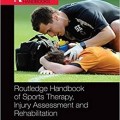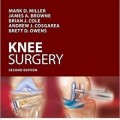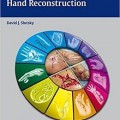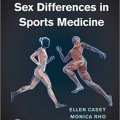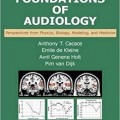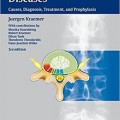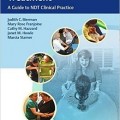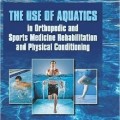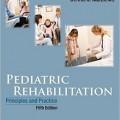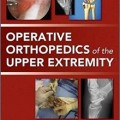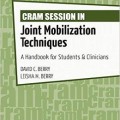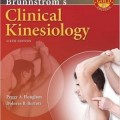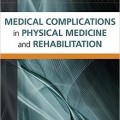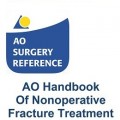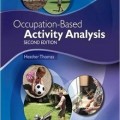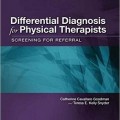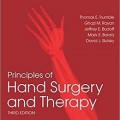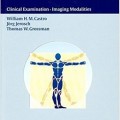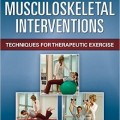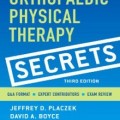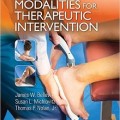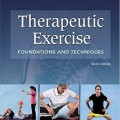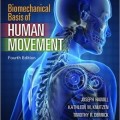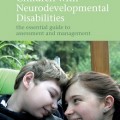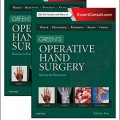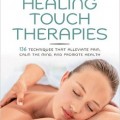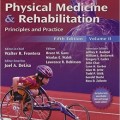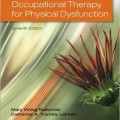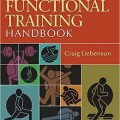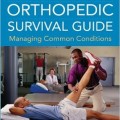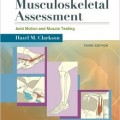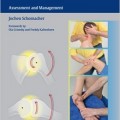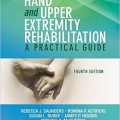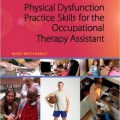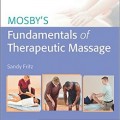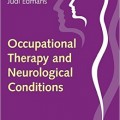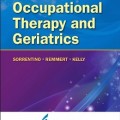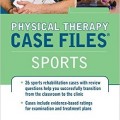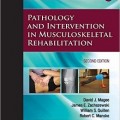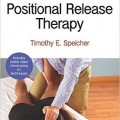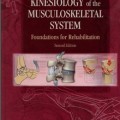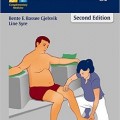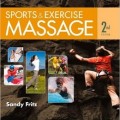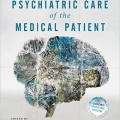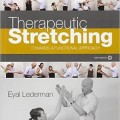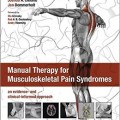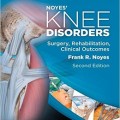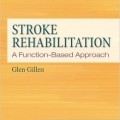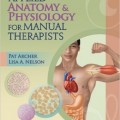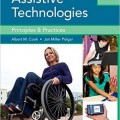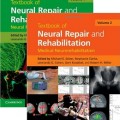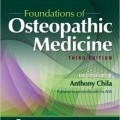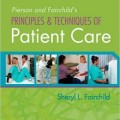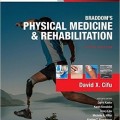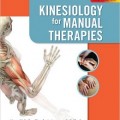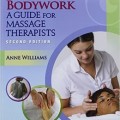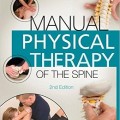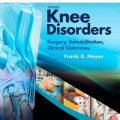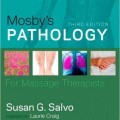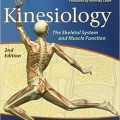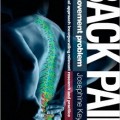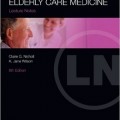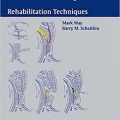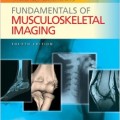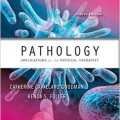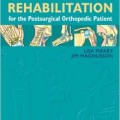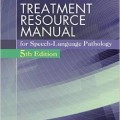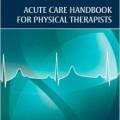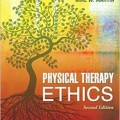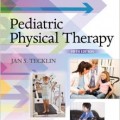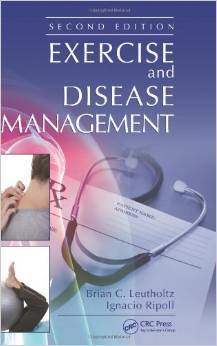دانلود کتاب ملزومات کاردرمانی برای صلاحیت بالینی
Occupational Therapy Essentials for Clinical Competence, 2ed
Building on the foundation of the first edition, Occupational Therapy Essentials for Clinical Competence, Second Edition continues to be unique in format by using the new 2011 ACOTE Standards as a blueprint to intricately outline a plan of action for the current practice of occupational therapy.
Occupation, theory-driven, evidence-based, and client-centered practice continue to be the core of the profession and is the central focus of the Second Edition of Occupational Therapy Essentials for Clinical Competence.
Dr. Karen Jacobs, Nancy MacRae, and Dr. Karen Sladyk, along with more than 60 contributors, have assigned each chapter an ACOTE Standard and all ACOTE Standards are addressed throughout this forward-thinking and comprehensive new Second Edition.
Occupational Therapy Essentials for Clinical Competence, Second Edition introduces every topic necessary for competence as an entry-level practitioner. Varied perspectives are provided in each chapter with consistent references made to the relevance of certified occupational therapy assistant roles and responsibilities.
Inside Occupational Therapy Essentials for Clinical Competence, each chapter has been strengthened with up-to-date evidence-based information. The Second Edition continues to have student and faculty activities, evidence-based charts, multiple-choice questions, and PowerPoint presentations. Appendices also provide relevant information in an easily accessible manner.
Some new chapters inside the Second Edition include:
• Interprofessional education and practice
• Occupational Therapy Practice Framework
• Meaning and dynamic of occupational and activity
• Evaluations and interventions to enhance rest and sleep
• Telehealth
• Grants
• Professional presentations
• Emerging areas of practice
To enhance consistency, Dr. Gail Bloom has developed and includes a collection of multiple choice questions and PowerPoint presentations for each chapter that will allow students to confidently learn and prepare for the NBCOT certification exam.
Occupational Therapy Essentials for Clinical Competence, Second Edition continues to be appropriate for OT and OTA students, both at the beginning and the end of their education. Chapters can be assigned to students to present to their peers, with the expectation that they will have an engaging and fun activity to help their peers with application of the material.
Occupational Therapy Essentials for Clinical Competence, Second Edition incorporates adult learning theory as its basis to assist in establishing cognitive interest. All occupational therapists and occupational therapy assistants will welcome this unique organizational format of grouping concepts together to reinforce and facilitate learning.
Review
“As a textbook, it is a good read. It is comprehensive and its emphasis on highlighting the evidence base for topics is very welcome. It is clearly set out and very readable with self assessment activities and critical thinking questions that allow the reader to explore and develop their own learning. Overall, this is an exciting textbook which embraces evidence-based practice and encourages the reader to be active in their learning.”
– Anna Clampin, Coventry University, British Journal of Occupational Therapy
About the Author
Dr. Jacobs is a clinical professor of occupational therapy and the program director of the distance education postprofessional occupational therapy programs at Boston University. She has worked at Boston University for 30 years and has expertise in the development and instruction of online graduate courses.Dr. Jacobs earned a doctoral degree at the University of Massachusetts, a Master of Science at Boston University, and a Bachelor of Arts at Washington University in St. Louis, Missouri.
Dr. Jacobs’ research examines the interface between the environment and human capabilities. In particular, she examines the individual factors and environmental demands associated with increased risk of functional limitations among populations of university- and middle school–aged students, particularly in notebook computing, use of tablets such as iPads (Apple), backpack use, and the use of games such as Wii Fit (Nintendo).
In addition to being an occupational therapist, Dr. Jacobs is also a certified professional ergonomist (CPE), the founding editor in chief of the international, interprofessional journal WORK: A Journal of Prevention, Assessment & Rehabilitation (IOS Press, The Netherlands), and a consultant in ergonomics, marketing, and entrepreneurship.
She is the proud mother of three children (Laela, Josh, and Ariel) and Amma (grandmother in Icelandic) to Sophie, Zachary, Liberty, and Zane. Her occupational balance is through travel, photography, walking, and co-writing children’s books.
Nancy MacRae, MS, OTR/L, FAOTA is an associate professor at the University of New England (UNE), in Portland, Maine, where she has taught for 23 years. She is a past president of the Maine Occupational Therapy Association and a past director of the UNE occupational therapy program.
Nancy’s work experience has been within the field of developmental disabilities, primarily mental retardation, across the lifespan. Her graduate degree is in adult education, with a minor in educational gerontology. Involvement in interprofessional activities at UNE allows her to mentor and learn from future health care practitioners and to model the collaboration our health care system needs. Scholarship has centered around aging and sexuality, documentation, professional writing, and interprofessional ventures. She has been a member of the editorial board of WORK: A Journal of Prevention, Assessment & Rehabilitation since its inception.
Nancy is the proud mother of two sons and a 14-year-old granddaughter. Occupational balance is maintained through participation in yoga, reading, walking, baking, and basket making.
Karen Sladyk, PhD, OTR/L, FAOTA has been an occupational therapy educator in New England for over 18 years—first at Quinnipiac University and currently at Bay Path College. She “accidentally” fell into writing when she was a substitute at a focus group at an American Occupational Therapy Association (AOTA) annual meeting and conference, offering suggestions of what she thought students wanted to know. Since that time, she has edited or authored 9 textbooks targeted specifically at occupational therapy/occupational therapy assistant students’ specific needs. Known as a “hard and demanding” teacher, she cares very deeply about students getting an intense and meaningful education.
Like every occupational therapist/occupational therapy assistant, she has a difficult time balancing her life, but she enjoys travel, quilting, crafts, and writing. She visited all 50 states before turning 50 herself. Karen spends time with her sisters and nephews in Connecticut and Utah and continues to collect vintage jewelry at flea markets. Lately, she has been hunting for Disney Lanyard pins.
Contents
Chapter 1 The Experience of Flow and Meaningful Occupation
Chapter 2 Cultural Impact on Occupation
Chapter 3 Interprofessional Education and Practice: A Current Necessity for Best Practice
Chapter 4 History and Philosophy
Chapter 5 The Occupational Therapy Practice Framework: Domain and Process, 2nd Edition
Chapter 6 Meaning and Dynamic of Occupation and Activity
Chapter 7 Occupational Performance and Health
Chapter 8 Effective Communication
Chapter 9 Therapeutic Use of Self
Chapter 10 Teaching, Learning, and Health Literacy 1
Chapter 11 Safety and Support
Chapter 12 Occupational Performance in Natural Environments: Dynamic Contexts for Participation
Chapter 13 Clinical Reasoning
Chapter 14 Occupational Therapy Theory Development and Organization
Chapter 15 Occupational Therapy Theory Use in the Process of Evaluation and Intervention
Chapter 16 Screening, Evaluation, and Referral
Chapter 17 Evaluation of Activities of Daily Living and Instrumental Activities of Daily Living
Chapter 18 Evaluation of Education and Work
Chapter 19 Evaluation of Play and Leisure
Chapter 20 Evaluation of Occupational Performance in Rest and Sleep
Chapter 21 Evaluation of Occupational Performance in Social Participation
Chapter 22 Documentation of Occupational Therapy Services
Chapter 23 Intervention Planning
Chapter 24 Client Factors in Occupational Performance Functioning
Chapter 25 Interventions to Enhance Occupational Performance in Activities of Daily Living and Instrumental Activities of Daily Living
Chapter 26 Interventions to Enhance Occupational Performance in Education and Work
Chapter 27 Interventions of Play and Leisure
Chapter 28 Interventions to Enhance Occupational Performance in Rest and Sleep
Chapter 29 Interventions to Enhance Occupational Performance in Social Participation
Chapter 30 Environmental Adaptation and Ergonomics 3
Chapter 31 Assistive Technology
Chapter 32 Occupation-Centered Functional and Community Mobility
Chapter 33 Physical Agent Modalities
Chapter 34 Interventions to Enhance Feeding, Eating, and Swallowing
Chapter 35 Case Management and Coordination
Chapter 36 Consultation, Referral, Monitoring, and Discharge Planning
Chapter 37 Emerging Areas of Practice
Chapter 38 Telehealth
Chapter 39 Laws, Credentials, and Reimbursement
Chapter 40 Marketing and Management of Occupational Therapy Services
Chapter 41 Quality Improvement
Chapter 42 Supervision of Occupational Therapy Personnel
Chapter 43 Fieldwork Education
Chapter 44 Leadership
Chapter 45 The Importance of Scholarship and Scholarly Practice for Occupational Therapy
Chapter 46 Grants
Chapter 47 Professional Presentations
Chapter 48 Ethics and Its Application to Occupational Therapy Practice
Chapter 49 Local to Global Resources for the Occupational Therapy Professional
Chapter 50 Promoting Occupational Therapy to Others and the Public
Chapter 51 Professional Development
Chapter 52 Competence and Professional Development: Learning for Complexity
Chapter 53 Roles of Occupational Therapists
Chapter 54 Ethical Conflict Resolution
Chapter 55 Advocacy in Occupational Therapy
لینک کوتاه : https://bookbaz.ir/?p=39382
نویسنده : Karen Jacobs EdD
ناشر : Slack Incorporated; 2 edition
سال انتشار : 2014
زبان کتاب : انگلیسی
نوع فایل : PDF
تعداد صفحات : 869
(ISBN) شابک : 1617116386
قیمت کتاب درآمازون : $95.29
حجم فایل : 41 MB
